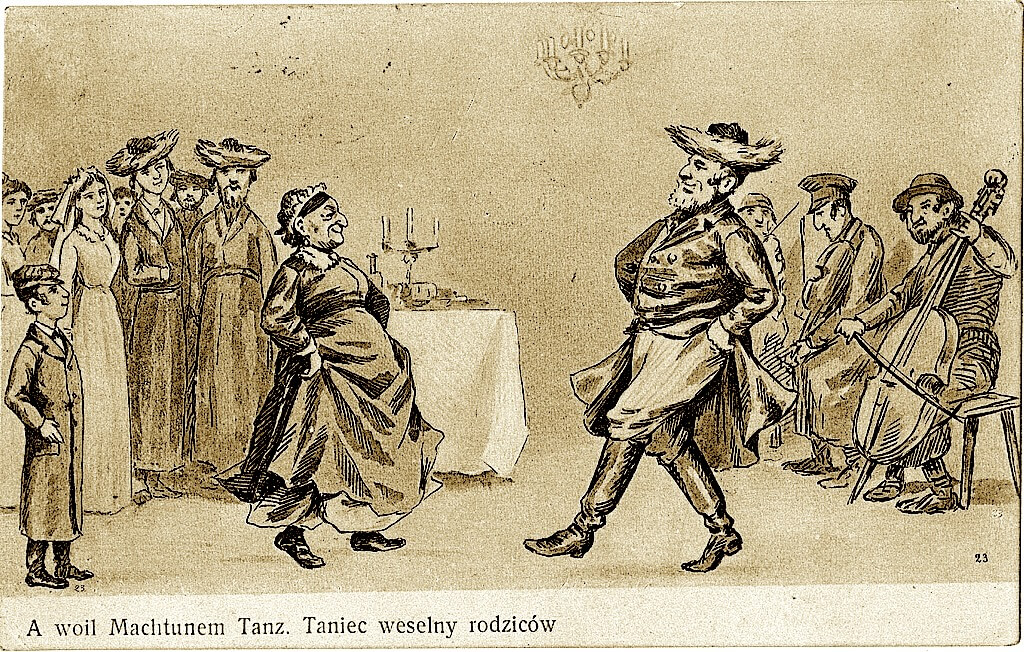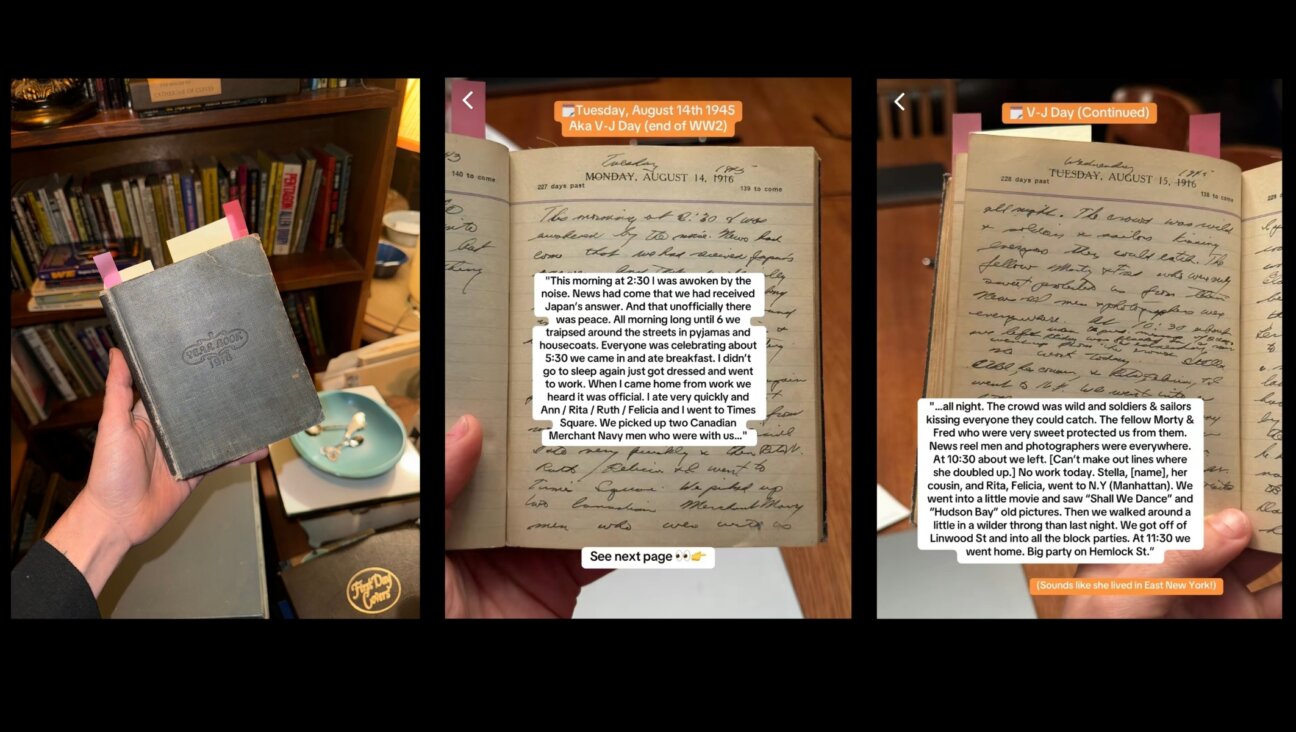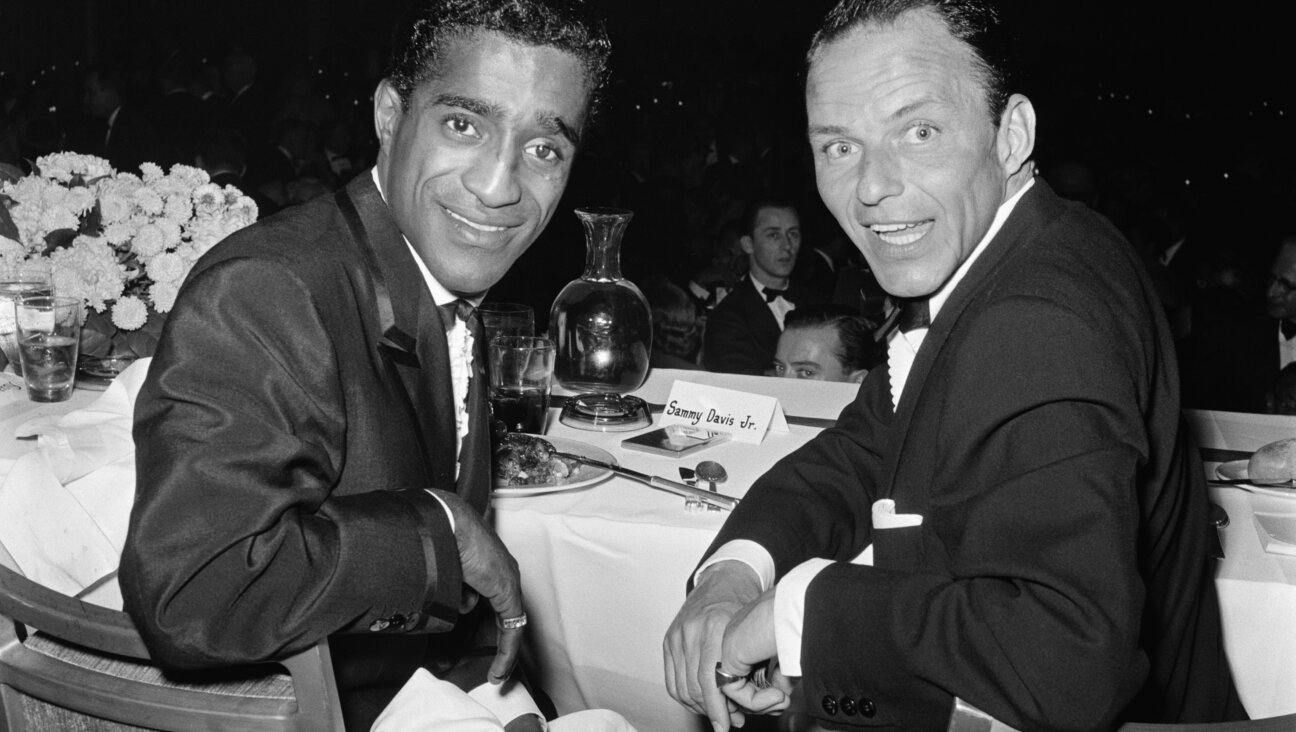How It Felt To See Myself on a Neo-Nazi Hit List for Trump Trolls

Image by Screenshot
Donald Trump’s neo-Nazi and white supremacist fans were recently given the gift of a website with the harmless-sounding name of “Jews in Modern Society.” As the Forward reported, this website was actually a hit list identifying over 400 Jews meant to be targeted and harassed for the crime of being left-wingers, advocates of multiculturalism or alleged members of the international Jewish finance cartel. All these Jews were deemed guilty of somehow standing in the way of Trump’s ascendance to power. On the list were academics, activists and journalists.
I was one of them.
Specifically, my crime was writing a piece in the Forward during the lead-up to Brexit, in which I defended the European Union and advocated that it work to protect migration and multiculturalism.
According to some of my friends, making the list was a badge of honor, as my journalistic rabble-rousing had clearly angered the right people. For others, especially my immediate family members, this was no laughing matter.
I’ve been somewhere in the middle. I’ve made light of the website “Jews in Modern Society” (which has since been disabled) and of my appearance on it. But in all honesty, this is the type of gallows humor one needs to confront the very real dread that Jews and many other minorities are feeling in the United States today.

Image by Screenshot
Personally, I don’t fear for my immediate safety. But the experience of seeing my face and name on a list compiled by far-right extremists not only conjured up Nazi associations for me, it also served as a stinging reminder that my family and I are included in the masses of Americans who will be in danger should we get a Trump Administration. Even in the likely event of a Trump loss, we will still have to face the festering anger of his supporters, who are all too numerous for my comfort.
This experience has been even stranger for me because, throughout my adulthood, being Jewish in this country has never made me feel threatened or targeted — until now. It’s an experience that takes me back to my childhood in Georgia in the 1990s, when the top item on the conservative agenda there was bringing prayer time to public schools, and when we were subjected to calls for Jews to convert. I was never the victim of any kind of crime, but the status of “otherhood” and being the object of suspicion was palpable. Buoyed by the optimism of a then-thriving Middle East process, my Reform congregation was less concerned about advocating for Israel and more worried about protecting our freedoms from the local religious right.
The national conservative movement has been, until recently, good at burying this. Starting with National Review founder William F. Buckley, the Republican Party has prioritized purging anti-Semitism from its ranks. And with the party’s general hawkishness in defense of Israel, especially after 9/11, it’s become less and less taboo for Jews to break away from their Democratic family members and vote red.
This website, however, seemed to come straight out of the anti-Semitic tradition of political radio show host Charles Coughlin, who often fused his populism with a distrust of both Jewish subversives and shadowy financiers. It’s another indication that Trump’s candidacy has changed everything. Although Trump’s fans are quick to fight any accusations of anti-Semitism with the fact that he has a Jewish son-in-law or that he has spoken in favor of Israel, the signs of anti-Semitism in his camp are getting clearer and clearer. They range from the support of white nationalists like the Ku Klux Klan and Stormfront to the use of the six-pointed Star of David in an anti-Hillary Clinton meme.
Worse, in the final countdown to Election Day, Trump has moved away from trying to win and moved toward blaming his poor polling numbers on Clinton’s connection to the media and international bankers — classic anti-Jewish dog whistles. As Josh Marshall has written over at Talking Points Memo, there’s a highly anti-Semitic flavor to Trump followers’ conspiracy theory as to how the Access Hollywood tapes revealing the candidate’s sexist comments got out to the public.
My sincere hope, having now gotten a small taste of Trump’s white nationalist base, is that even conservative Jews will become aware of the unique threat posed by Trump’s candidacy.
The language of white nationalism today focuses mostly on race — the fear of black crime, say, or the corruption of English by Spanish-speaking immigrants. These are the things that drive the Trump agenda of obsessing over “law and order” and promising to build a wall along the border with Mexico. But America’s white nationalism, especially in the KKK, from which Trump has already gained support, has always been fused with a defense of Christianity (there’s a reason they burned crosses), and that meant that the race war didn’t end with targeted racial minorities — it extended to include Jews as well. Today, most American Jews don’t have to face the economic disadvantages of racial minorities or especially the violent over-policing that African Americans endure, but we have to realize that for white nationalists, even the most assimilated Jew is an enemy.
Even if Trump loses, the white nationalist political forces, once thought to be a dying breed, will remain organized, funded, inspired and focused after Election Day. A loss will surely anger them and fuel their hunger for political revenge, and unless Clinton secures a punishing landslide, they will be confident that they have enough energy to redouble their efforts down the road. Jews of all political stripes are going to have to very quickly understand that the all-too-real, organized anti-Semitism of the white nationalist right has taken over a major political party. After we confront the election itself, we’re going to have to confront that.
Ari Paul is a journalist in New York City who has covered politics for The Nation, The Guardian and many other outlets. Follow him on Twitter, @AriPaul
A message from our Publisher & CEO Rachel Fishman Feddersen

I hope you appreciated this article. Before you go, I’d like to ask you to please support the Forward’s award-winning, nonprofit journalism during this critical time.
We’ve set a goal to raise $260,000 by December 31. That’s an ambitious goal, but one that will give us the resources we need to invest in the high quality news, opinion, analysis and cultural coverage that isn’t available anywhere else.
If you feel inspired to make an impact, now is the time to give something back. Join us as a member at your most generous level.
— Rachel Fishman Feddersen, Publisher and CEO






















